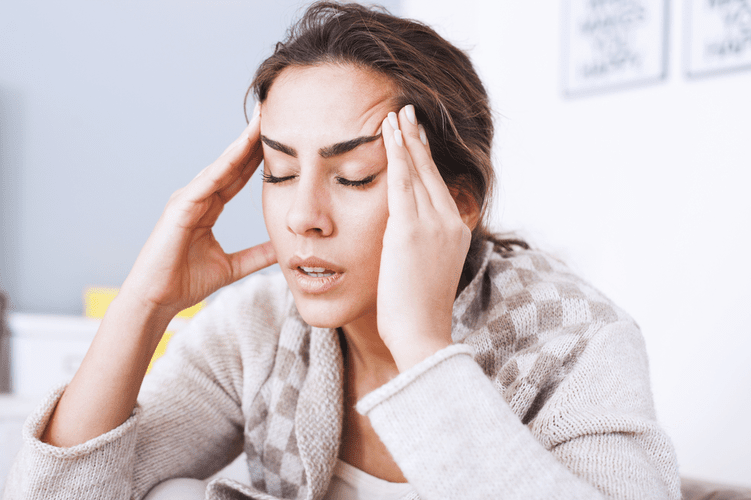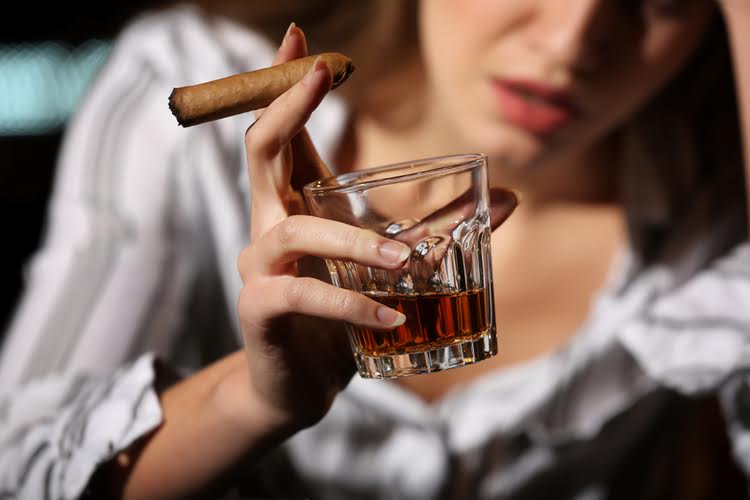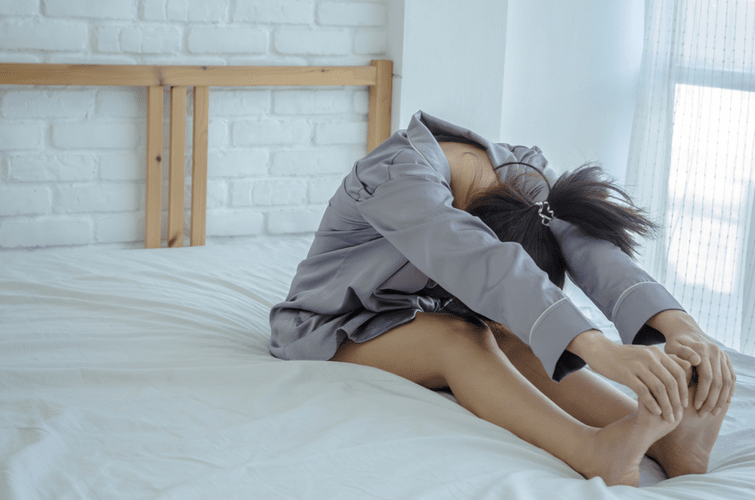Content
Variations in this gene might put people at risk for both alcohol misuse and depression. It’s not always clear if depression makes you drink or vice versa.

The more you drink, the lower your overall serotonin levels become, making underlying feelings of depression worse. Can drinking alcohol cause depression and, conversely, can depression lead to misusing alcohol? The bottom line is alcohol abuse and depression are a dangerous combination. And unfortunately, this combination can be self-reinforcing and incredibly hard to break.
Why People Self
The specific effects of alcohol on antidepressants depend on the antidepressant a person takes. Some people who take selective serotonin reuptake inhibitors may become severely intoxicated when they use antidepressants. Scientists have had observational evidence for decades that suggests an association between alcohol use and mood disorder. For example, a small study in 1991 concluded that depressive episodes after drinking alcohol may be related to reduced levels of serotonin. People who are depressed and drink too much have more frequent and severe episodes of depression. Heavy alcohol use also can make antidepressants less effective.

And yes, because alcohol makes you sleepy, a few beers or glasses of wine can seem to relax you and relieve anxiety. The overwhelming feeling of depression and anxiety after a night of drinking is more common than you think and here’s why. Everyone has their own unique situation and comfort level with drinking alcohol. If you have Alcoholism in family systems questions about taking Trintellix for depression, its side effects, or whether you can combine Trintellix and alcohol, talk with your healthcare provider for personalized advice. Side effects you might experience while taking Trintellix. These side effects can include feeling dizzy, feeling sleepy, and having trouble focusing.
Why Is It Bad To Mix Antidepressants And Alcohol?
Below, we’ll cover the reasons why, and what you can do to take care of yourself if you suffer from either, or both conditions. The “high” from drinking alcohol only lasts a little while; afterwards, the depression is worse. You don’t have to be alcohol dependent to engage in excessive drinking. Men under the age of 65 should consume no more than four “standard” drinks per day or no more than 14 drinks per week. Men over age 65, and women of any age, should consume no more than three drinks per day or seven drinks per week.

Davidson KM, Ritson EB. The relationship between alcohol dependence and depression. The reason is that benzos and alcohol are both sedatives. Used individually, they can relax muscles, make you sleepy, and reduce feelings of panic, fear, and agitation. Use benzodiazepines and alcohol together and all those effects intensify. Baylor’s Walker says it’s a combination of many chemical imbalances caused by alcohol consumption that may lead to mood disorder, but it happens over time. But, Harvard’s Iannucci notes, the symptoms likely will be magnified in someone who’s going through an active bout of depression.
Ways Alcohol Makes Depression Worse
The child who has been neglected or born in poverty tends to have a greater chance of having these disorders due to binge drinking. A type of psychotherapy, cognitive behavioral therapy helps people learn how to replace negative thoughts with positive and uplifting feelings. CBT helps teach people how to identify potential triggers, find ways to cope with urges to drink and set realistic goals. Cognitive behavioral therapy generally starts in a rehab setting and can be continued after treatment with the help of an alcohol counselor.

There are a variety of confidential, free, and no obligation ways to get in contact with us to learn more about treatment. If you believe you or someone you love may be struggling with addiction, let us hear your story and help you determine a path to treatment. Discover how we’re providing personalized treatment based on breakthrough research. Trained information specialists answer calls, transfer callers to state services or other appropriate intake centers in their states, and connect them with local assistance and support.
Tip 4: Combine Treatments
It also lowers inhibitions, so if you’ve been trying to keep some difficult emotions, like sadness or anger, under wraps, they may come flooding in when you drink. Since alcohol can cloud your brain, it can keep you from seeing helpful solutions to problems. Namely, it interferes with the release of neurotransmitters linked to mood regulation, including serotonin and norepinephrine. Drinking activates the reward system in your brain and triggers dopamine release, so alcohol often seems to have a stimulating effect — at first. In small to moderate amounts, alcohol can temporarily lift your spirits and help improve your mood. Brain tumor, breast cancer, colon cancer, congenital heart disease, heart arrhythmia.
Alcohol always makes my mental health worse. Yes it is calming for about 30 minutes then it sends my depression into overdrive. I much rather find other methods to calm me than have my depression sent into a downward spiral.
— Mercury2Phoenix ♍♀️🌈 (@Mercury2P) December 2, 2021
To date, only one intervention has specifically addressed heavy drinking among psychiatric patients. Hulse and Tait evaluated the efficacy of a brief motivational intervention among psychiatric patients who reported drinking at hazardous levels prior to hospitalization. The patients were randomized to either the motivational-intervention condition or a psychoeducational condition when discharged from an inpatient hospitalization. At a 6-month follow-up, patients in the motivational-intervention condition reported a significantly greater reduction in weekly alcohol consumption compared with the psychoeducational group. Given all of this, Boden recommends that anyone dealing with depression just stay away from alcohol. For those who do not want to stop drinking entirely, Iannucci recommends taking a break from it for a time to see whether it improves their depression or not.
Treatment Options
Swanson AJ, Pantalon MV, Cohen KR. Motivational interviewing and treatment adherence among psychiatric and dually diagnosed patients. Martino S, Carroll KM, O’Malley SS, Rounsaville BJ. Motivational interviewing with psychiatrically ill substance abusing patients. Hoencamp E, Haffmans PMJ, Duivenvoorden HJ. Predictability of dropout in unipolar depressed outpatients.
- It may seem easier to keep drinking until alcohol dulls the feeling again, but this will only make you feel much worse later.
- The more you challenge your beliefs about the benefits of self-medication, though, the less hold they’ll maintain over your behavior.
- The pandemic, the downturn in the economy, and increasing unemployment can leave anyone feeling stressed, anxious, or depressed.
Instead, remind yourself you can do things differently next time. Then, try distracting yourself to help take your mind off how you feel. If you already feel a little low, giving yourself a hard time for overdoing the alcohol probably won’t improve matters.
Maybe you’re downing a few beers after a stressful week at work or after a heart-wrenching break up. You think a few drinks will relax you and make you feel good. SAMHSA’s mission is to reduce the impact of substance abuse and mental illness on America’s communities. Find treatment facilities and programs in the United States or U.S. If you continue to drink a second, third, or fourth drink, alcohol eventually will have the opposite effect. “How fast it happens depends on the dose, the person, and what you have in your stomach,” says Koob. After sparking the good chemicals, the brain has to make up for it and ends up increasing the production of feel-bad chemicals to compensate.

If the sun is out, that’s even better — sunshine can trigger the release of serotonin, which can help relieve depression. It often feels very tempting to keep drinking until you feel better, especially when you have less access than usual to more helpful coping methods. As a result, any troubles you’re facing, from work stress to relationship issues, may get worse. The connection between alcohol and depression is well documented.
Get Help For Alcoholism
Three medications, naltrexone (ReVia®), acamprosate (Campral®) and disulfiram (Antabuse®), have been approved by the Food and Drug Administration for the treatment of alcohol use disorder . It’s also true that many people who drink too much are actually depressed, drinking to try to lift the depression. They can make depression worse; worsen alcohol or drug abuse, or even cause death from suicide. If self-medicating a mental health issue has triggered a substance abuse problem , it’s known as a dual diagnosis or co-occurring disorder. You turn to alcohol or drugs when you’re feeling anxious, stressed, or depressed.
Alcohol always makes my mental health worse. Yes it is calming for about 30 minutes then it sends my depression into overdrive. I much rather find other methods to calm me than have my depression sent into a downward spiral.
— Mercury2Phoenix ♍♀️🌈 (@Mercury2P) December 2, 2021
Chemicals such as serotonin and dopamine will fluctuate rapidly with alcohol consumption. Serotonin alcohol makes depression worse helps balance a person’s mood, whereas dopamine controls the brain’s reward system.
Holiday Blues – Put Your Mental Health First This Holiday Season – University of Utah Health Care
Holiday Blues – Put Your Mental Health First This Holiday Season.
Posted: Wed, 01 Dec 2021 21:33:10 GMT [source]

